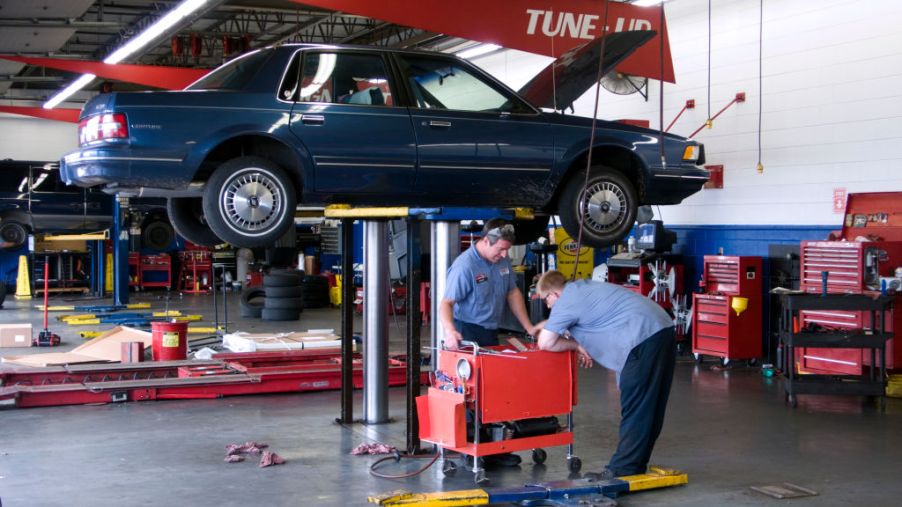
Why “Lifetime Fluids” Aren’t Really Lifetime Fluids
Maintaining your vehicle is easier than ever today, with fluids and parts that provide optimum performance. Though fluids have come a long way in recent decades, many owners get caught up in the hype and lure of “lifetime fluids.” But this name is often more misleading than it appears, and we’re here with the truth about lifetime fluids.
What is a lifetime fluid?
Many manufacturers, dealerships, and even certain car models boast “lifetime fluids,” also called “fill for life” fluids. Engine and transmission fluids are just a few that can fall into this “lifetime” category. Being drawn in by lifetime fluids is easy as it appeals to an owner’s desire to minimize maintenance as well as its costs. According to Auto Guide, “avoiding certain fluid changes can add appeal and save you hundreds of dollars or more.” And in theory, these fluids should never need to be replaced. Right?
The truth behind lifetime fluids
While these fluids carry the name “lifetime,” manufacturers and companies do not specify which lifetime these will last through. According to Central Ave Auto, claims behind lifetime fluids “do not specify that the fluids are meant to last “their lifetime,” not “your vehicle’s lifetime,” “your lifetime,” or “the lifetime of your engine and/or transmission.” Simply put, what’s designated as “lifetime” is designed to last the lifetime of the fluid until it needs to be changed.
The truth is, there is no fluid in your vehicle that can withstand your vehicle’s lifetime and certainly not the owner’s. Unfortunately, many owners assume that fluids that are branded this way do not need to be replaced. Not only is ignoring proper fluid maintenance bad for the car, but you may also unknowingly be in violation of your vehicle’s warranty if something goes wrong.
The best timeline for changing your car’s fluids
The only guaranteed way to help your car reach 100,000 miles or more is to maintain it properly. That includes maintaining regular fluid services. While lifetime fluids are certainly designed to last longer than other types of fluids, they still need to be serviced, drained, and replaced. Your vehicles, its engine, and transmission will last the longest if you service these fluids within the following mileage:
Transmission fluid: Every 30,000-60,000 miles, depending on the transmission type. According to Independent Motors, “manual transmissions require more changes than automatic.” Transmission fluids often come with the “lifetime fluid” name, but ignoring a fluid change, in this case, could lead to minimal or contaminated fluids and the transmission in need of expensive repairs.
Engine/motor oil: Every 3,000-5,000 miles (or every three to six months). This frequency can vary greatly however, depending on your use, oil type, and vehicle. Engine or motor oil is often the most recognized among fluids as it requires the most frequent changing. Ignoring oil changes increases the risk of debris to pollute your engine and shorten its lifespan considerably.
Engine coolant: Every 30,000 miles or every two or three years (some coolant fluids may last up to 50,000 miles). Though this fluid lasts a considerable time and can be considered a lifetime fluid, having adequate coolant or antifreeze in your engine ensures, it will not be irreparably damaged by overheating.
Brake fluid: Every two years. Brake fluids should be checked and changed if necessary every time your brakes are serviced. After all, your brakes are vital to not just the health of your car, but your safety as well.
Power-steering fluid: Every 30,000-50,000 miles (or every three years). In order for your steering wheel and tires to turn with ease, they must be lubricated properly.
Differential fluids: Every 30,000 miles (roughly). According to Popular Mechanics, this is “one of the most-overlooked maintenance tasks.” But if these “lifetime fluids” are not replaced within the required time, your car won’t be getting very far. That’s because differential fluids help lubricate the gears and parts that transfer power from one differential to the other.


